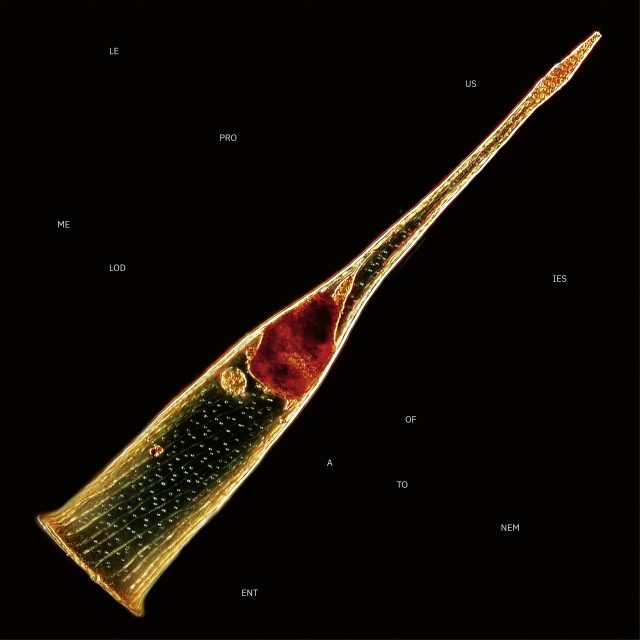Leprous: ‘Melodies of Atonement’ Review

Album artwork for Melodies of Atonement
Leprous are back, again. And I think by this point if you follow even a slither of the modern progressive music scene, you know who we’re talking about here. A song, a record, seen them in passing headlining festivals across Europe, they are *everywhere* more or less leading the scene headlining all over the place. So would yet another Leprous album really contain anything new? Fresh? Different? In short, yes.
The record opens with leading single Silently Walking Alone which I fell in love with very quickly. The chorus melody is a real sticker – possibly due to the ‘poppier’ song structure that allows for the hooks to get driven into your mind, and despite not having the pipes for it, I found myself singing along too. And seeing Leprous perform this track live at Radar Festival last month show’s that they’re already one step ahead in taking this record to the masses.
My enjoyment continued through with subsequent track Atonement. Leading chorus line “It’s all because of you” was equally ringing through my head with only one single listen of this track. That’s what makes Melodies of Atonement stand out for me personally. It’s a series of singles that could all very easily stand on their own with catchy melodies throughout hook to draw you in, something punchy to rile up a mosh pit, and some quirky atonal dissonance. Which in summary is what Leprous are all about.
We do have some more ballad tracks as well on this record. Or at least as ballady as Leprous can possibly get with their uneasy use of harmony. I Hear The Sirens is emotionally large, dealing with signs of loneliness and isolation. It’s slower and not quite as heavy, but still has moments to build up to a climax mostly from the pure expression that Einar’s voice can provide the arrangements with. His dramatic vibratos, the tiny squelches of saturation coming from his belting, and those wonderful moments when he spirals out into his head voice simply oozes dramaticism.
Do you fear the quiet?
I see the signs
That I’m left here with silence
A track later on in the record, Like a Sunken Ship is a far quirkier number opening with a very mischievous bass lick bending into an augmented chord to leave the key a little bit ambiguous before the rest of the arrangement starts to come together, with possibly some Kylie Minogue inspired “lalala”‘s for good measure.

Simen Børven playing at Radar Festival // July 2024
Faceless too opens with what sounds like an acoustic string bass (or possibly fretless), further enforces the slightly more bass-centric compositional decisions across this record where the melody will often start lower down before being echoed further up the harmonic register. The first chorus in this track stands out particularly too, and I love the tiny drum flourish whilst Einar is allowed to take the forefront with just him and his piano. Faceless is also a prime example of having clever developments of melody; reformatting and recontextualising what we’ve already heard. Particularly so the eventual evolution into choral stabs to finish off what might be my favourite track on the record.
Self-Satisfied Lullaby is great example of Leprous taking influence from a different ambient compositional style. With all sorts of quirky sound design underneath of the Lullaby that Einar sings above top, it wouldn’t sound out of place on one of his solo records – that is until the rest of the band comes in for the final stretch of the track.
Closing track Unfree My Soul is by no stretch the greatest album closer that they could have done. I guess for me personally I’m always craving something as perfect as The Sky is Red from 2019’s Pitfalls record which means fighting a losing battle, but alas it’s still a fantastic track with a repetitive arpeggio that lays a foundation for the song. Once again, another fine example of taking a melody, twisting it, turning it, and developing it to support different sections of the strong. And if that isn’t exactly what the band set out to do with Melodies of Atonement, then I don’t know what is.

Baard Kolstad playing at Radar Festival // July 2024
It also goes without saying that the instrumental playing on this record is stellar, although I appreciate I’ve not mentioned it explicitly up until this point. Baard Kolstad is possibly my favourite drummer in the modern day progressive music scene, with Simen Børven killing it on bass from tonal choices to compositional ones, and this is reflected in every live performance that I’ve seen from Leprous over the years. Whilst the guitars for Leprous are never shreddy, they always serve the song perfectly and I never feel like I want more or less of them.
I’ve found it a bit hard to find the words to describe this record – particularly so as Leprous have been so consistent with regards to their output in my opinion. Melodies of Atonement isn’t new, it’s possibly not particularly much of an evolution either on any existing sound or record that the band have made. But it is unequivocally Leprous. An entire high-quality album’s length of more of that signature sound that we’ve all come to love over the last decade, and I think whilst this is “more of the same” even though it’s been marketed as going back to the roots of what old Leprous used to sound like (which I don’t think is true), it is still worth celebrating having another stunning addition to the band’s discography.









